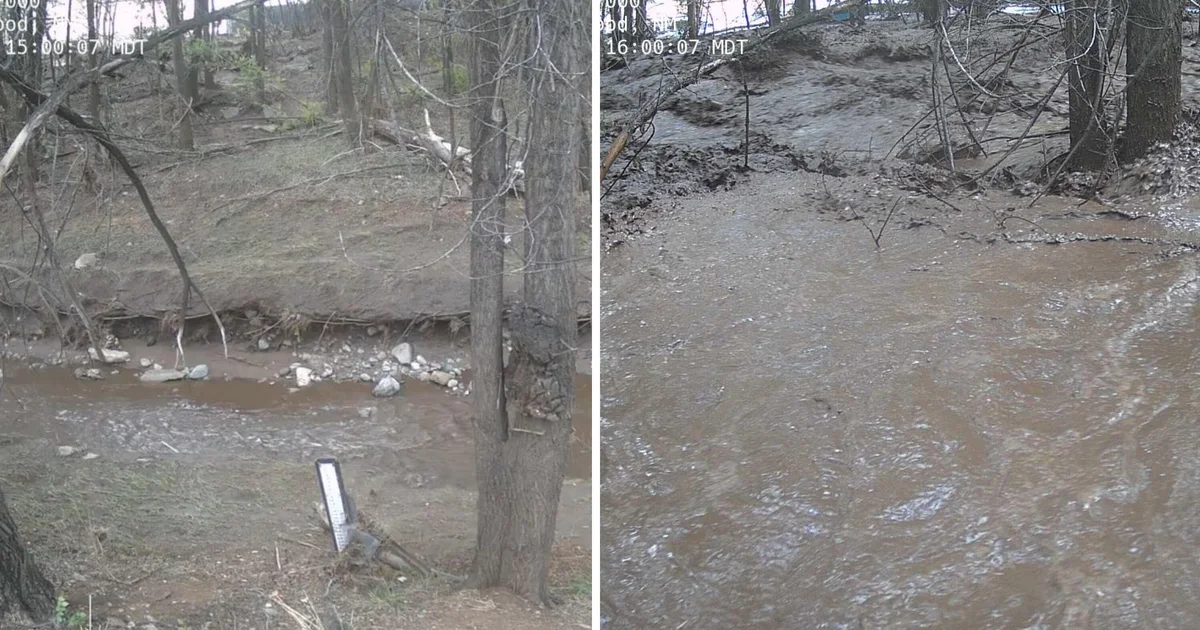A father and two children in Lincoln, New Mexico, were washed away in flood waters on Tuesday, the National Weather Service reported after declaring a flash flooding emergency in the area.
Multiple rescue missions were underway at Gavilan Trailer Park in Ruidoso, and another person was also trapped in high water, the NWS said in its local storm report at 5:50 p.m. ET.
“Homes starting to be moved by water,” the NWS said.
A video posted on social media by Ruidoso resident Kaitlyn Carpenter shows fast-moving water sweeping a home down a river.
Images from the U.S. Geological Survey posted to the NWS Albuquerque’s X account also show a river in Lincoln County, the Rio Ruidoso, rapidly rising 15 feet in about an hour. “Stay away from the river! Seek higher ground NOW!” the weather service wrote.
Another 30 minutes later and it’s hard to tell where the riverbed is. The river is now in major flood stage at over 15 feet. Stay away from the river! Seek higher ground NOW! #nmwx pic.twitter.com/gd3ecndelG
— NWS Albuquerque (@NWSAlbuquerque) July 8, 2025
The Rio Ruidoso at Hollywood possibly reached 20.24 feet during the height of the flash flood, NWS Albuquerque said on X. If the provisional number is confirmed, it would be a record high.
According to the USGS’s real-time data, water levels at the 30-mile-long river located about 150 miles southeast of Albuquerque were “extremely above” its historic daily averages on Tuesday evening.
The area around the Rio Ruidoso and much of Lincoln County was scorched last year by wildfires, making the soil unstable at the surface and more prone to flooding.
Wildfires can significantly change the landscape, including reducing vegetation — which decreases the number of plants and roots to hold all the soil in place. The burn scars increase flash flood risks for at least two years, according to the federal Burned Area Emergency Response, which assessed the damage.
This is a developing story. Check back for updates.
Carter Evans contributed to this report.
Kiki IntarasuwanKiki Intarasuwan is a news editor for CBS News & Stations.
© 2025 CBS Interactive Inc. All Rights Reserved.
